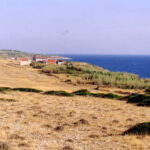In the European Union, the share of renewable energy in gross final energy consumption in 2015 will further increase to the planned 20 percent in 2020, while 11 countries, including Croatia, have already achieved their target objectives at the national level, according to the latest report from Eurostat.
In 2015, the share of renewable energy sources in gross final energy consumption in the EU increased to 16.7 percent from 16.1 percent just a year earlier. The number has almost doubled since 2004 when data was first available (8.5 percent), reports Tportal.hr on March 16, 2017.
The EU has set a target to ensure the share of renewable sources reaches 20 percent by 2020. Moreover, these sources will continue to play a key role in helping the EU to meet its energy needs beyond 2020.
Because of this, member states have already agreed on a new EU target level for renewable energy by 2030, which is at least 27 percent. Recall that the share of renewable energy in gross final energy consumption is one of the key indicators of the Europe 2020 target.
22 countries have increased their share of renewables
In 2015, the share of renewable sources increased in 22 EU member states (including Croatia) when compared to 2014. Since 2004 when data was first available, all member states have substantially increased their share.
Sweden leads among the 28 member states, with their share of renewable energy sources in gross final consumption of energy at 53.9 percent in 2015. Following Sweden is Finland with 39.3 percent, Latvia with 37.6 percent, Austria with 33 percent, and Denmark with 30.8 percent.
Croatia closely follows with a share of 29 percent in 2015. Croatia’s share of renewable energy sources in 2014 was 27.9 percent, and back in 2004, Croatia’s share was at 23.5 percent. Croatia has stipulated that by 2020 their share of renewables in gross final consumption of energy will reach 20 percent.
On the other hand, the lowest share of renewable sources in 2015 was recorded in Luxembourg and Malta who both had 5 percent. The Netherlands recorded 5.8 percent, Belgium recorded 7.9 percent, and the United Kingdom recorded 8.2 percent.
Of the 28 member states, 11 of them, including Croatia, have already achieved their national 2020 target levels. These 11 countries in total include Croatia, Bulgaria, Czech Republic, Denmark, Estonia, Italy, Lithuania, Hungary, Romania, Finland, and Sweden.







